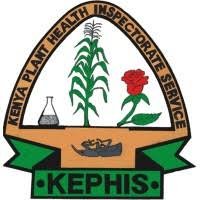Kenya continues to witness incidents of collapsing storey buildings – a menace blamed on unprofessional contractors on one hand and poor quality of materials – cement and steel structures on the other hand.
Many lives, property and livelihoods have been lost as result of collapsing buildings – a challenge the National Construction Authority (NCA) has been working to eradicate.
Kenya Bureau of Standards (KEBS) has set standards for such products – many of which are hardly complied with, thereby risking the lives and health of innocent consumers.
It is for this reason that Abyssinia Group of Industries (AGI), dealing in metallic pipes is in the news for the wrong reasons – after COFEK received two complaints in less than a month.
The Abyssinia Iron and Steel Ltd, a subsidiary of AGI, that operates in Athi River and sources its own raw materials – iron ore – from their Kibos plant located in Kisumu County makes pipes which do not conform with the set standards thereby continuing to operate and sell their products illegally.
“Their mass (weight) per metre is below the prescribed KEBS and the East African Standard”, said one of our informers who spoke to COFEK on a strict call of anonymity lest he jeopardizes his relations with the firm that has an Ethiopian link.

The issue at hand is that Abyssinia has failed to comply with the East African Standard (EAS 134:2019) on cold rolled steel sections specifications.
The standard affects the entire East African region. This means their pipes should be sold in and or outside Kenya.
The EAS 134:2019 standard specifies the requirement and sectional properties of cold-rolled steel sections of thickness of 1 mm to 8 mm for use in structural and general engineering applications.
According to another complainant, “Abyssinia are not able to produce hollow sections as specified in EAS134:2019 Appendix A of the standard.
‘By producing below the mass per metre, they are disadvantaging consumers and are also creating an unfair level playing field as they undercut other compliant manufacturers.

‘The issue with standards is that one is either compliant or they are not. In this case, Abyssinia have never been compliant. But some unscrupulous people at KEBS have either been compromised and or are partners in crime – claimed the anonymous note
‘We want COFEK to intervene and take both Abyssinia and KEBS to Court”, added the another source.

‘Accordingly, the parameter Abyssinia are not able to meet is the yield strength. What this means, is that anyone using the Abyssinia pipes is actually risking the lives of innocent people as well as their investments”.
“We expect COFEK, unless they are also part of the problem, to demand that National Construction Authority (NCA) advises their licensed contractors not to use the Abyssinia until they meet the standard.
“As for KEBS, they should have long shut down that company. We cannot continue like this’, he added.
With these serious complaints against Abyssinia, COFEK on July 7, 2022 wrote to Abyssinia and KEBS for their right of reply.
What was intriguing is that Abyssinia obtained a letter from KEBS, backdated to July 1, 2022 and which letter it forwarded to COFEK.
Signed by KEBS managing director Lt. Col (Rtd) Bernard Njiraini the letter never referred to any request from Abyssinia but it notified Abyssinia that the KEBS Steel Technical Committee was ‘examining the need and extent of the revision’ of the EAS 134:2019.
In the said letter, KEBS did not give the timelines of the said revision plans nor an indication as to whether or not Abyssinia ought to wait for the same and or continue with production of offending pipes.

What was, however, implied was that Abyssinia have no legal standing to continue producing the pipes which do not meet the required standards – until such a time the revision would be done.
Being the East Africa standard means that KEBS should persuade other 5 other countries to agree to the revision which is time-consuming and no mean feat, at all.
It also highly unlikely that Abyssinia competitors and the Kenya Association of Manufacturers (KAM) will arrive at an easier consensus.
In light of the development, COFEK has written to Abyssinia advising them to halt production, dealing and sale of the offending pipes until they receive the KEBS greenlight after the due process.
COFEK has also requested Competition Authority of Kenya (CAK) to investigate Abyssinia’s violation of the anti-trust laws
In their response, a director of Abyssinia Mitesh Patel said ‘The cage forming FCF technology is for maximum performance save time and material during the direct forming of square and rectangle tubes – without first requiring to produce round tubes. A universal, centrally adjustable roll set for direct forming allows extremely fast dimension changes.’
Mr Patel added ‘The FCF technology is superior and saves on material as it utilizes the cage forming technique as opposed to overlapping weld which is applied in the conventional technique. The FCF creates very uniform edges hence their love from the body builders. The technique does not reduce the plate thickness in any way.
‘There have been concerns on the resultant reduced mass per meter on tubes formed by FCF however this has no bearing on the strength of the tubes a fact which we have verified with public works labs tensile tester machines. FCF is a technology of the future mainly because of the quality of the product and the reduced waste’, he added.




